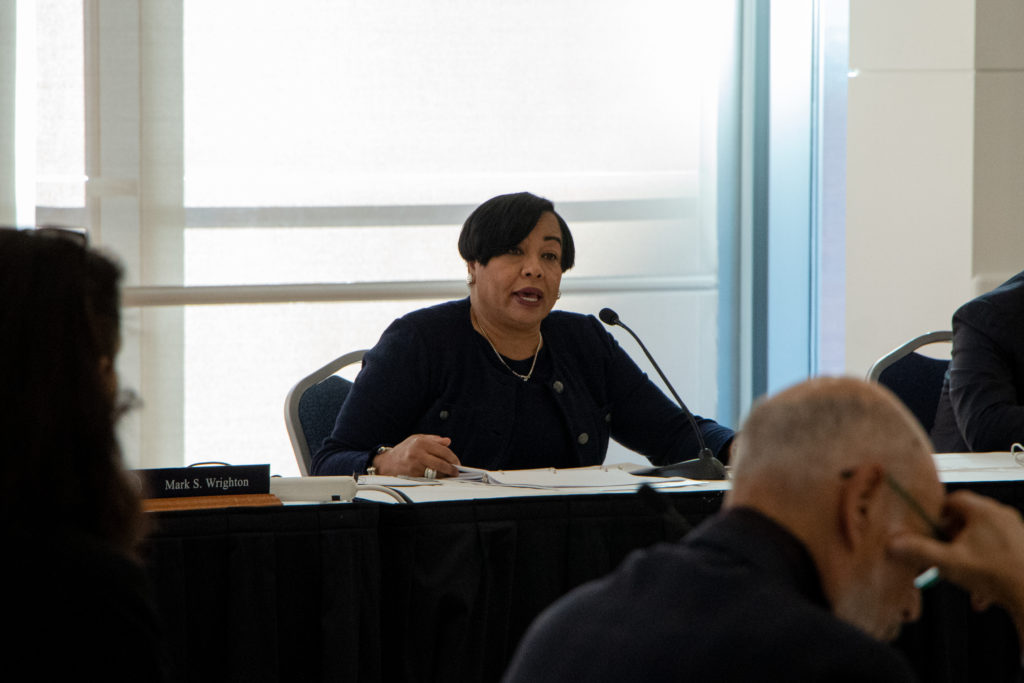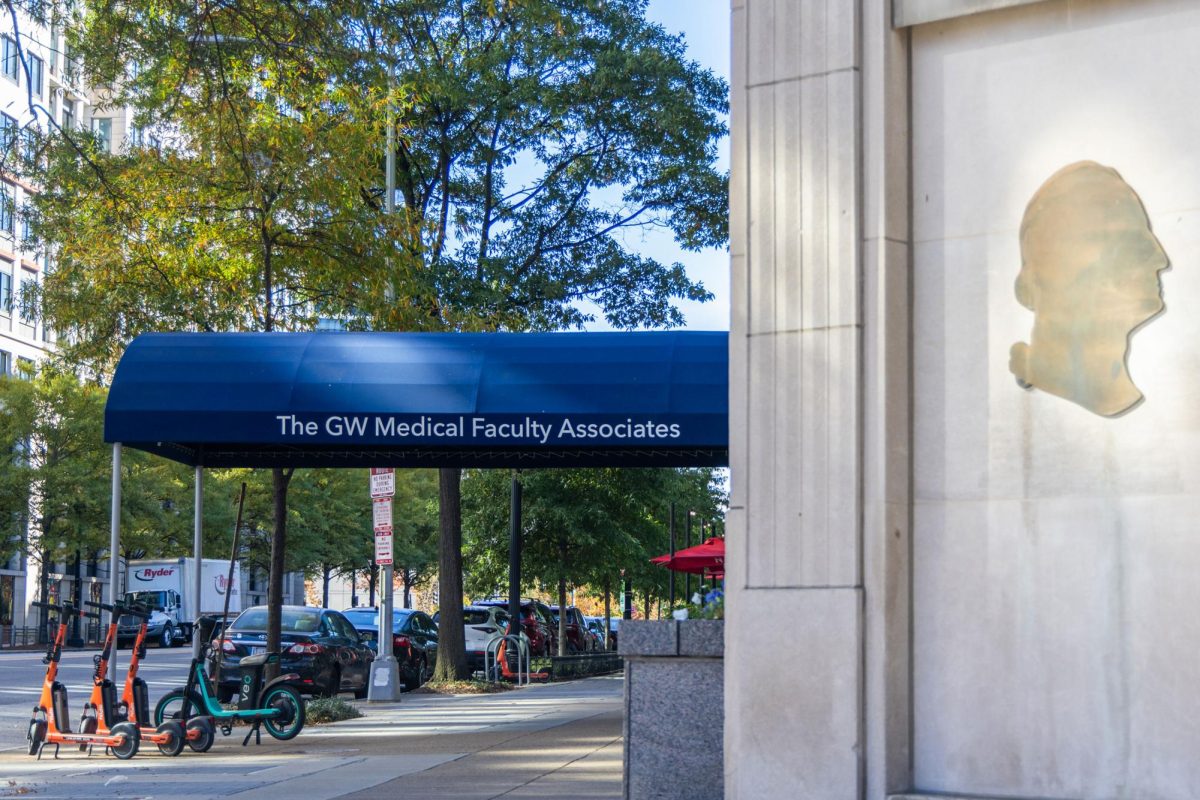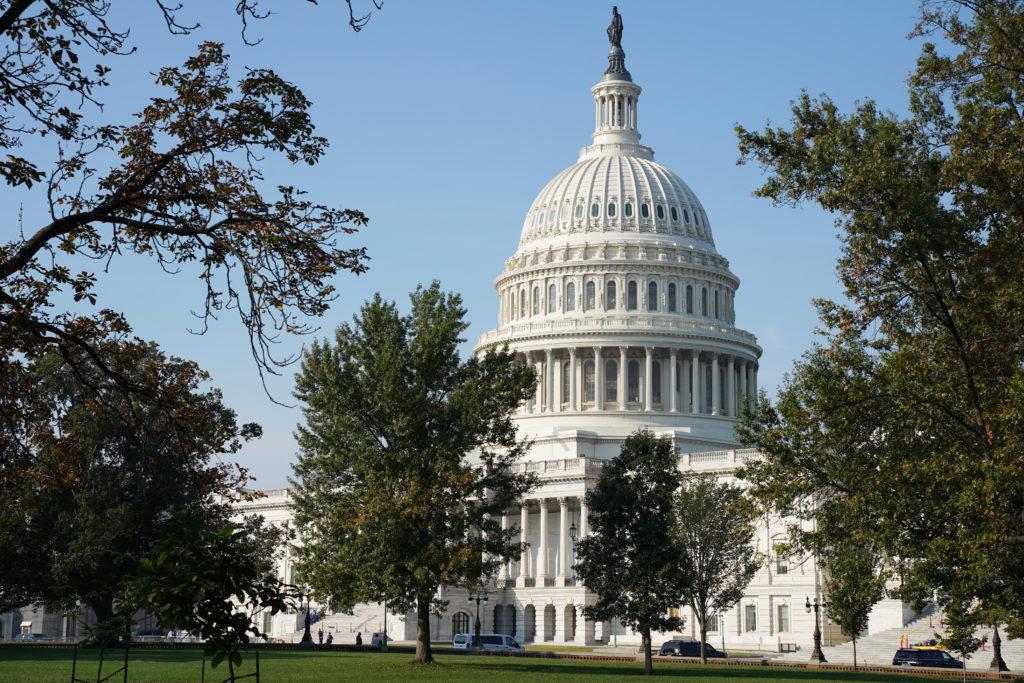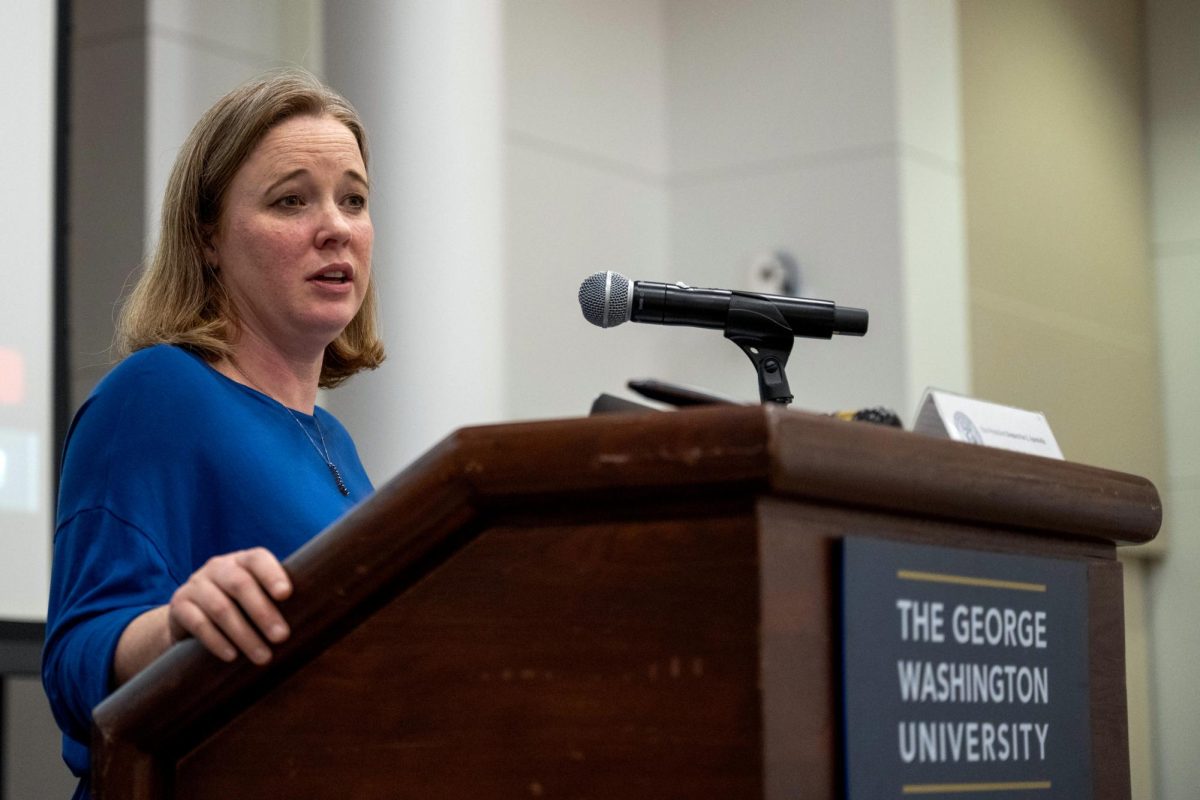Updated: Monday, Feb. 27, 2023, at 10:36 p.m.
Officials said GW’s endowment has declined “slightly,” on par with a national trend of shrinking endowments due to high inflation rates.
Board of Trustees Secretary Avram Tucker said at a Board of Trustees meeting Friday that officials hope to maintain the University’s $2.4 billion endowment, a financial foundation used to fund professorships, scholarships and construction projects. The endowment increased from $1.8 billion in fiscal year 2020 to $2.4 billion in FY 2021, which ended June 30, 2021, and last year higher education and finance experts said GW’s endowment could continue to decline from its $2.4 billion standing due to precarious inflation rates nationwide.
The endowment rose by more than $20 million in FY 2020 after decreasing by $20 million in FY 2019.
Tucker said the University budget remains “on track,” and Chief Financial Officer Bruno Fernandes has started to focus on GW’s real estate portfolio this year.
“We appreciate the administration’s efforts to focus on controlling expenses within reason,” Tucker said.
Board Chair Grace Speights declined to comment on if the Board plans to disclose GW’s funding, research and gifts and what procedures officials will adjust to fit the shared governance principles that trustees approved in May. Speights also declined to comment on if the Board plans to extend future loans to the MFA or how trustees plan to handle the Medical Faculty Associates if it does not break even by the end of FY 2024.
Will Alexander, the president of the Alumni Association, said a group of 10 students officials selected through a “competitive” process will engage with alumni through a new alumni engagement center after alumni asked to meet with more students during GW’s outreach efforts. He said alumni donations are a little “behind,” and the department is working on reaching out to “loyal” donors and asking them to continue financially supporting the University.
He said officials have collected $8 million toward the annual giving program goal of $13.5 million and are halfway to their goal of 18,500 donors, with donations from 11,000 alumni so far. He said there are about 61,000 “engaged” alumni donors, but Development and Alumni Relations staff are working to raise that number to 81,500 engaged alumni.
“It’s a lot more focused on trying to reach out to your contemporaries to people in your network, your sphere, to get them to start developing that habit and seeing how they can show their participation and support,” Alexander said.
He said Giving Day, an annual 24-hour fundraising event in April, will shift from a one to two-day event running from noon April 4 to noon April 5 to attract more donors. He said Giving Day this year will focus on reaching 2,750 donors instead of the $1 million goal set during the past two years to focus on rallying support from existing donors.
“We are working to try to improve this,” Alexander said. “There’s targeted outreach to folks who have given in the past to figure out where we can meet them and get them excited about continuing to renew their commitment and sponsorship dollars.”
Officials said administrators have already started to prepare University President Ellen Granberg to replace Interim President Mark Wrighton.
Speights said Vice President, Chief of Staff and Secretary of the University Aristide Collins has been leading a “smooth” transition from Wrighton to Granberg after officials named her as the next president of GW in January.
Speights declined to comment on the Board’s priorities for transitioning from Wrighton to Granberg and how the Board plans to work with Granberg on strategic planning.
Wrighton said he and other administrators will spend three to four days each month with Granberg to update her on the issues the University faces before she takes office July 1 when Wrighton’s term expires.
After the public portion of the meeting, students, including members of GW Dissenters, a student group that advocates to end GW’s involvement with the war industry, staked outside the executive session of the meeting, calling on trustees to divest from war-profiteering companies with signs reading “GW enables war crimes.” Students approached Speights and advocated for “total” divestment from war profiteering companies, but Speights did not make a verbal commitment, according to the GW Dissenters Instagram profile.
Vice Provost for Research Pamela Norris said at a Faculty Senate meeting last month that she has been working to increase University funding from Raytheon, an aerospace and defense company that GW Dissenters has pressured GW to divest from, according to their petition.
A group of 14 student organizations and 17 faculty members formed a coalition last month to urge officials to publicly disclose donors of one-time gifts that fund University initiatives they can choose to support. University spokesperson Julia Metjian said the Board of Trustees has received the transparency disclosure letter from The Coalition for Ethics and Transparency and will consider the letter’s recommendations to publicly disclose GW’s sources for funding.
“With regard to disclosures, the University has policies in place related to receiving and disclosing funding, research and gifts,” Metjian said. “We regularly review these policies and practices, make appropriate updates and ensure they align with best practices to support transparency.”
Caitlin Kitson, Eoighan Noonan, Nick Pasion, Auden Yurman, Dylan Ebs and Fiona Bork contributed reporting.
This post has been updated to correct the following:
The Hatchet incorrectly reported that Collins is the vice president for development and alumni relations. Collins is the vice president, chief of staff and secretary of the University. We regret this error.








